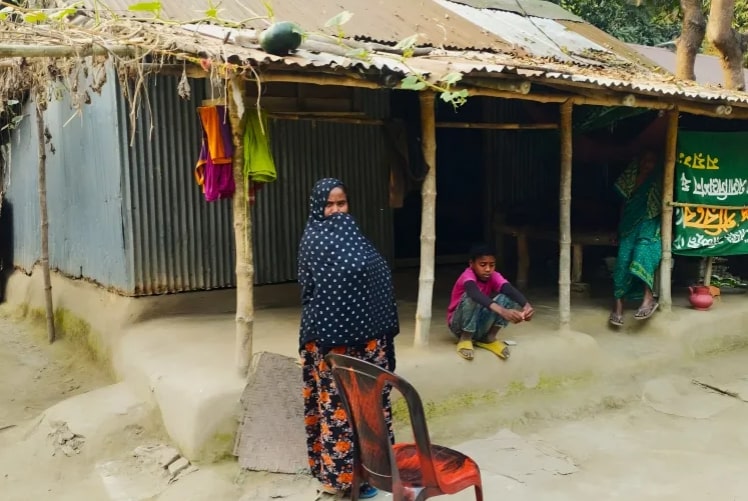In the quiet village of Baiguni in Kalai Upazila, known grimly as the “village of one kidney,” traffickers are exploiting the region’s poverty to feed a thriving illegal kidney trade spanning Bangladesh and India.
Among those trapped is 45-year-old Safiruddin, who sold his kidney in India last summer for 3.5 lakh taka (around $2,900), hoping to lift his family out of poverty. Instead, he was left with an unfinished house, chronic pain, and mounting regrets, reports AL Jazeera.
“I gave my kidney so my family could have a better life,” he told Al Jazeera, sitting outside his half-built brick house. But the money is gone, his health has deteriorated, and the brokers who arranged the sale disappeared with his passport and post-surgery medicines.
Safiruddin’s story is far from unique. A 2023 study published in BMJ Global Health found one in 35 adults in Kalai Upazila have sold a kidney, with most donors lured by poverty, debt, or addiction. Traffickers typically forge family certificates, IDs, and even DNA reports to pass off the organ sales as legal donations between relatives.
“Notary certificates and fake national IDs are used to show that the donor is a relative, which allows them to bypass transplant regulations,” said Monir Moniruzzaman, a Michigan State University professor and WHO task force member studying organ trafficking in South Asia.
Josna Begum, 45, a widow from nearby Binai village, described a similar ordeal. Brokers persuaded her and her second husband, Belal, to travel to Kolkata in 2019, promising up to seven lakh taka (around $5,700) each. In reality, she received just three lakh ($2,500) after the surgery at Rabindranath Tagore International Institute of Cardiac Sciences, and lost her passport in the process.
“I was OK with them taking away the prescriptions,” Josna said, “but I asked for my passport. They never gave it back.”
After the surgery, Josna stayed in India for two months, living in a rented apartment arranged by brokers. She returned to Bangladesh with nothing but pain and disappointment. Soon after, Belal abandoned her, remarrying and leaving Josna to struggle alone.
“I can’t do any heavy work,” she said. “I need medicine all the time.”
The illegal kidney trade is fuelled by desperation on one side and by wealthy patients on the other. India, for instance, recorded about 13,600 kidney transplants in 2023, while nearly 200,000 patients develop end-stage kidney disease each year.
Al Jazeera interviewed over a dozen Bangladeshi donors, all describing the same pattern: brokers who arrange forged documents, seize passports, and abandon them after the surgery.
The combination of poverty, demand for quick transplants, weak enforcement, and ruthless middlemen ensures that the grim trade in human organs continues — and villages like Baiguni remain marked by its scars.


